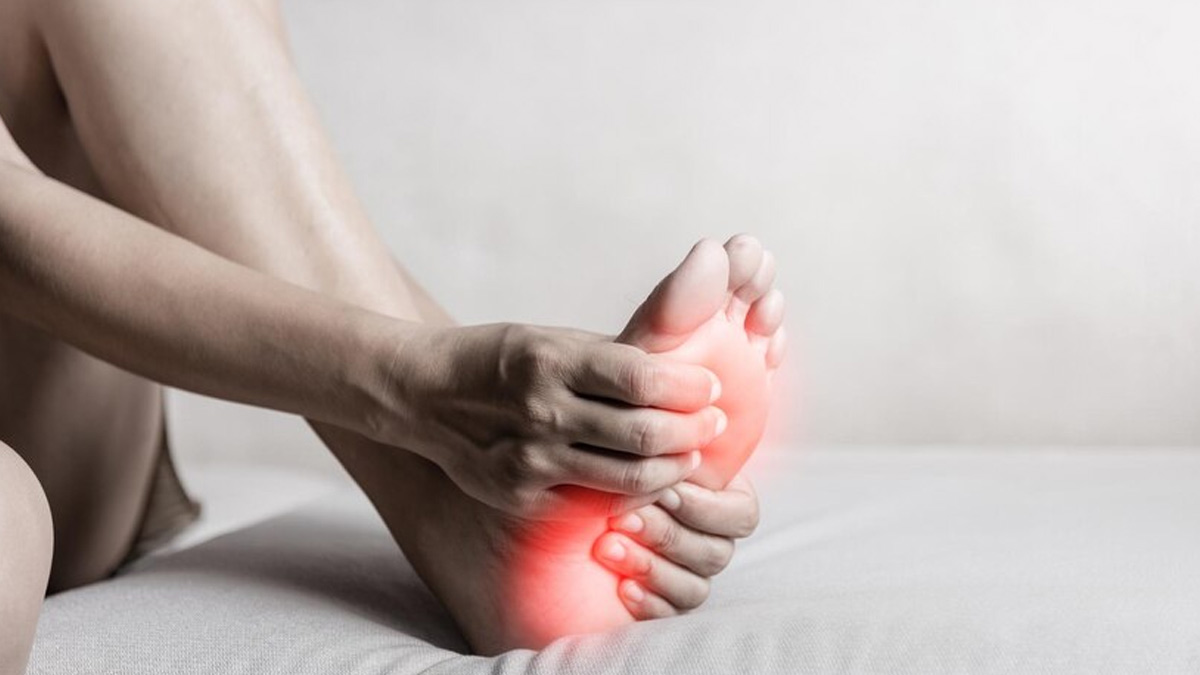
Numbness, that peculiar sensation of tingling, loss of feeling, or "pins and needles," can be both unsettling and inconvenient. Whether experienced occasionally or persistently, numbness can occur in various parts of the body, leaving us puzzled about its causes and concerned about its implications.
Table of Content:-
What is Numbness?
Numbness is a sensory experience characterised by a lack of sensation in a particular part of the body. It can manifest as a temporary, fleeting feeling or a chronic condition. This occurrence is typically a result of nerve-related issues, as nerves are responsible for transmitting sensations between the body and the brain.
When nerves become compressed, irritated, or damaged, they may send irregular signals, leading to the sensation of numbness.

Common Causes of Numbness
Prolonged Pressure
Numbness often occurs when pressure is exerted on nerves, as is the case when sitting or lying in the same position for extended periods. This type of numbness, known as "temporary paresthesia," usually resolves once the pressure is relieved.
Also read: Breast Cancer: Early Detection and 3 Minutes 3 Fingers Self-Examination Tips
Peripheral Neuropathy
According to Dr Supriya Roy, Loop's in-house medical advisor, Pune, peripheral nerves, responsible for sensation in the extremities, can be damaged due to various factors like diabetes, vitamin deficiencies, or exposure to toxins, leading to chronic numbness.
Carpal Tunnel Syndrome
Compression of the median nerve in the wrist can cause numbness and tingling in the hands and fingers, commonly experienced by those who perform repetitive hand movements.

Herniated Disc
A lumbar herniated disc, also known as a bulging, protruding, or ruptured disc, can be caused by ageing or a serious back injury. As per Dr Roy, if a disc in your lower back becomes dislocated, it can cause numbness in your legs.
Raynaud's Disease
A condition affecting blood vessels, causing them to narrow in response to cold or stress, leading to temporary numbness in the affected areas.
Dealing with Numbness
Change Positions
If numbness is caused by prolonged pressure, such as sitting at a desk or sleeping in an awkward position, changing positions frequently can help relieve the pressure on nerves and restore sensation.
Exercise and Stretching
Engaging in regular physical activity and stretching can improve blood flow, reduce nerve compression, and alleviate numbness caused by certain conditions like carpal tunnel syndrome.
Warmth
In cases of temporary numbness due to cold weather or Raynaud's disease, warming the affected areas can restore sensation and improve blood flow.
Also read: Why Your Fingers Expand and Shrink
Address Underlying Conditions
If numbness persists or is accompanied by other concerning symptoms, it's essential to seek medical attention. Addressing underlying conditions like diabetes, vitamin deficiencies, or spine issues can help manage and reduce numbness.
Massage and Physical Therapy
Professional massage and physical therapy can promote relaxation, reduce muscle tension, and improve circulation, potentially relieving numbness caused by muscular issues.
Numbness, though uncomfortable, is often a signal from our body that something requires attention. While temporary numbness may be easily resolved by addressing its cause, chronic or persistent numbness demands a more thorough evaluation.
Identifying the underlying condition is essential for effective management and treatment. By understanding the causes and applying appropriate coping strategies, we can take control of numbness and ensure our nerves function optimally, allowing us to lead healthier, more comfortable lives.
However, always remember to consult a healthcare professional for personalised guidance and medical advice.
Also watch this video
How we keep this article up to date:
We work with experts and keep a close eye on the latest in health and wellness. Whenever there is a new research or helpful information, we update our articles with accurate and useful advice.
Current Version
